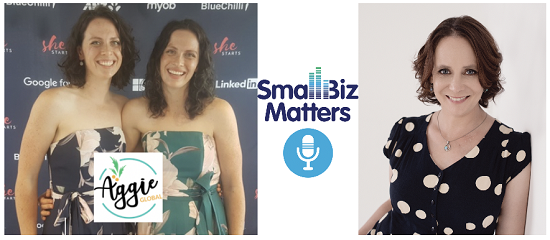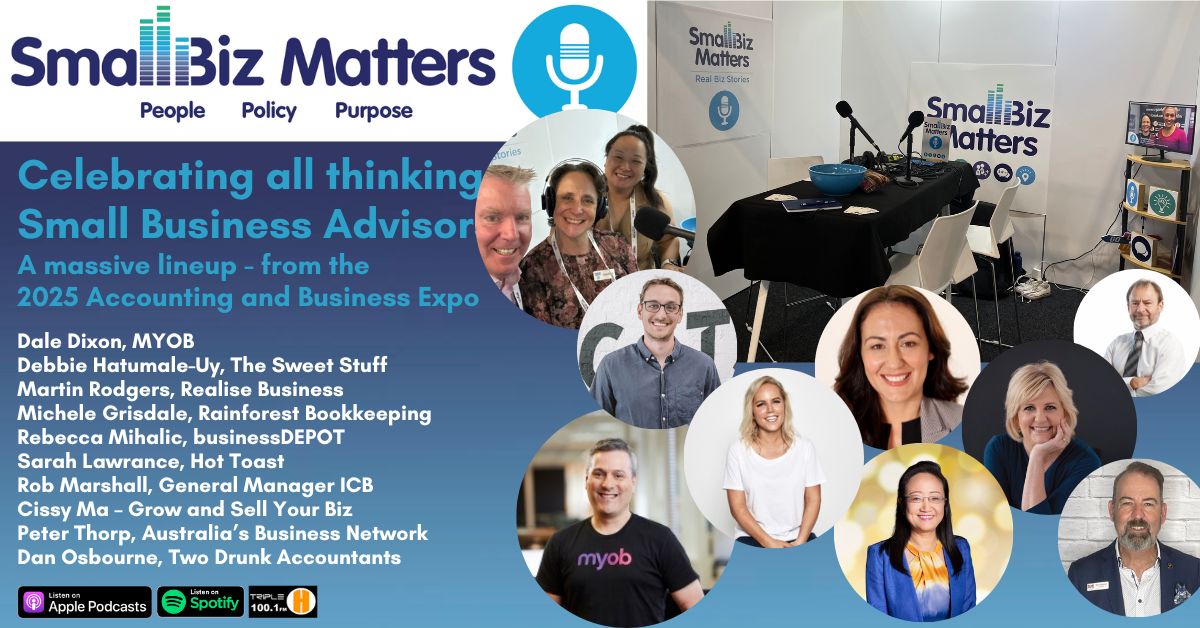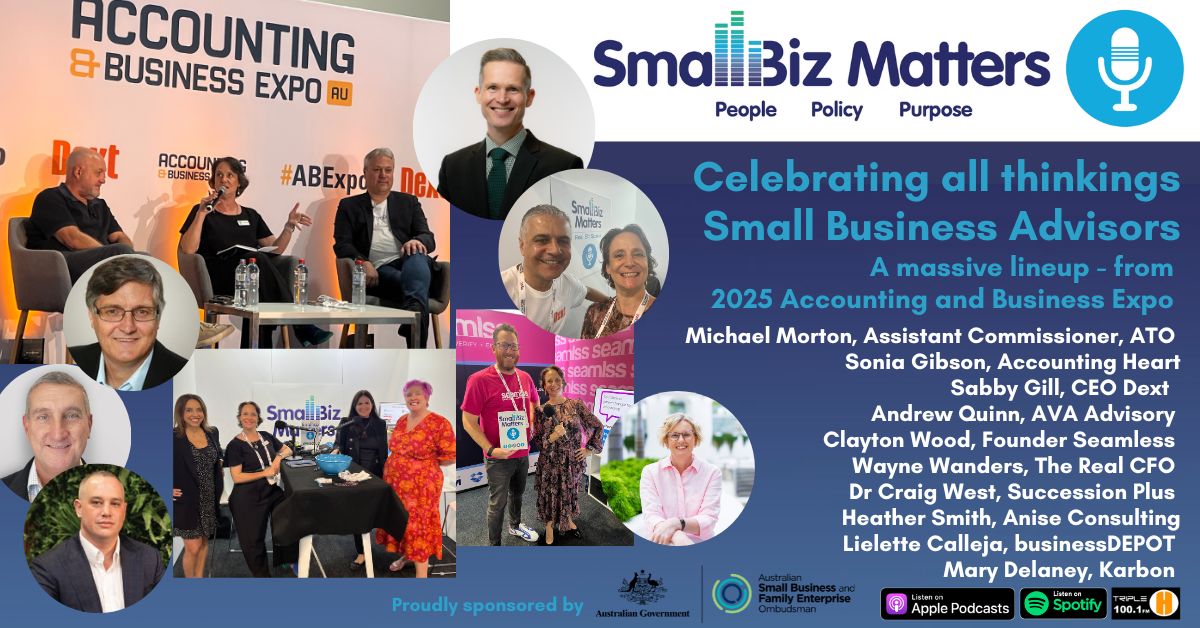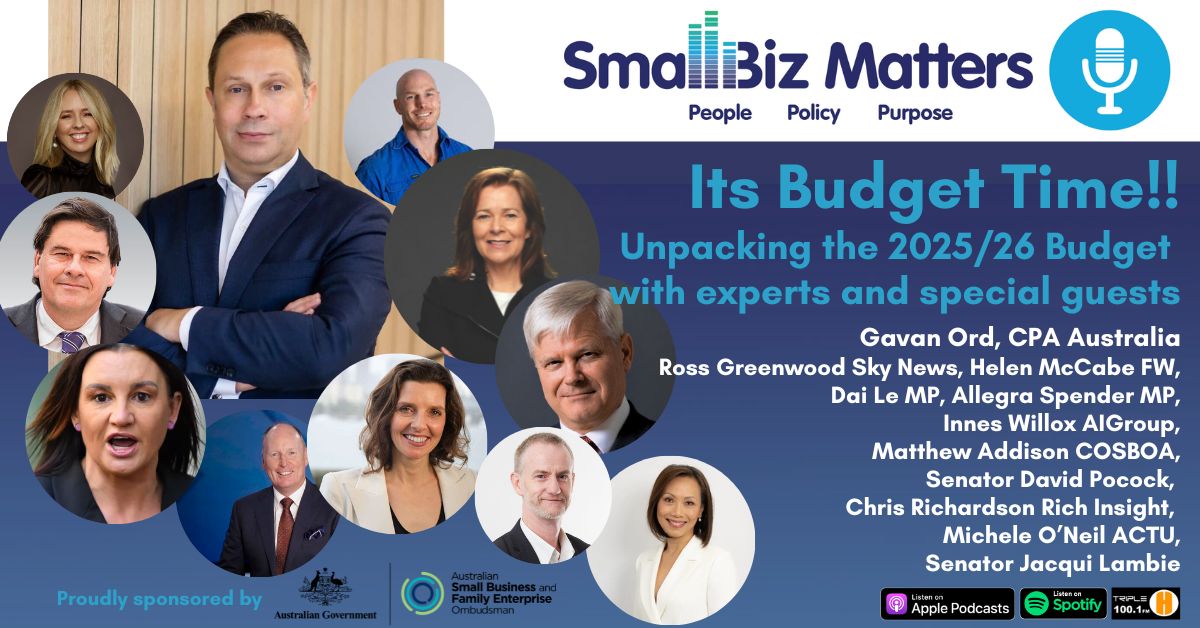The Next Gen of Australian Small Business - Inspiring stories from the future
| Tuesday January 7Small Biz Matters – a half hour program each week where you can work ON your business rather than IN it.
with Alexi Boyd, broadcaster, advocate and small business owner.
Date: 7 January 2020
This week we welcome a pair of inspiring young female entrepreneurs who, after growing up in a semi-rural part of greater Sydney; took that life experience and founded Aggie Global, a social business connecting small farmers to big markets in developing countries via an ecommerce platform.
Social enterprise isn’t necessarily a new concept in small business but it has been wholeheartedly embraced as a way to find a balance between income and inspiration by the millennial generation. As they begin their entrepreneurial journeys they are hungry to find meaning in what they are achieving and giving back to the global community in which they operate. But how do you make sure what you’re doing is financially viable and not just going to burn out your good will?
Lisa & Zoe Paisley are here today to share with us their story of building a business from the ground and the heart up.
Welcome to the show Zoe & Lisa.
Topics we’ll be covering:
Questions:
Tell us about your Agritech business and where the idea first came from?
We are the cofounders of Aggie Global, a social business connecting small farmers to big markets in developing countries via an ecommerce platform.
Lisa and I have always been exposed to agriculture, having cats, dogs, horses and chickens on our family place since we were kids. At high school we studied agriculture and were even given a plot of land to grow fresh veggies. When it came to choosing what to study at university, we both wanted to do something that would make positive impact. And at the end of the day, we all need to eat, so agriculture was a no brainer.
We also love to travel and be outdoors. So we did work placements across Australia and the world where we found that we loved working in agricultural development because it could have massive positive social impact for farmers in developing countries. This is why we started Aggie Global, to make positive social change by connecting farmers to new markets which boosts their income and addresses poverty.
Since then, we have worked in Fiji for 3 years, and found that the tourism industry is importing $30m AUD worth of food into the country every year, yet the majority of Fijian farmers live in poverty. This disconnect is what Aggie Global is addressing.
By connecting local farmers to local hotels and restaurants, farmers are increasing their income by 5x the national average and saved buyers up to 6x the amount of money spent on food.
Aggie Global showcases what local food is available and when via an ecommerce platform. Having this one-stop shop to buy local food, saves a hotel procurement officers hours of time, reducing the procurement process from months down to minutes.
How, in your opinion, are social enterprise businesses changing the world for the better?
Social businesses can have huge positive impact in the communities in which they work.
Social enterprises are a hybrid of positive social impact and sustainable business models, which means they can adapt quickly and scale out internationally when built well.
By being a business, the impact is not determined by donations or grants, but is self-sustaining from the sale of its products or services. All profits are generally used to move the business forward and drive further positive impact.
We believe social businesses are crucial for the key social challenges being faced around the world. Poverty, food security, equality and climate change all need to be addressed from multiple angles and social businesses are bringing a new way to address these issues
For example, there is a cafe in Sydney that employs refugees. By employeeing these refuges it helps them get on their feet in a new country where their previous work experience may no longer be valid.
The growing social business movement means that long term impact can occur and vulnerable individuals are less reliant on aid or government funding when it is needed.
Social businesses, especially start ups can adapt to changing conditions quickly. Businesses can leverage technology to address real problems and reach a wider audience. This is why the growing social business movement has taken hold because of how adaptable yet tailored this approach can be and is why Aggie Global has taken this approach.
In practical ways, what are some of the mistakes you’ve made with setting up this type of social enterprise business which others can learn from?
Our biggest mistakes are intertwined. The first two are 1) not trusting our gut and 2) not making a decision quick enough.
In start-up world you’ll constantly hear “fail hard and fast” and “learn from those mistakes.'' This was something we didn’t do so well to begin with.
Initially, Aggie Global was going to be this really cool app that would do all these amazing things, like identify crop diseases from a single photo. We had talked with customers and had thought this would be an amazing thing that would use AI and have a huge impact for farming communities. But when we actually looked into it further, the app itself had no impact and farmers weren’t interested in using it. So after a year of finding app developers and finally getting an app released, we had to call it off and loose some great team members.
We knew from the start that that idea was a mammoth job but we wanted to get something out in the market and start collecting data. Which meant we were ignoring our gut and what our customers were saying, meaning we didn’t call off app development early enough.
So another lesson here is know your customers and learn from them quickly. Also don’t be married to the solution. See what is actually happening and not what you want to be happening, so constantly question and evaluate your findings and take away your expectations and what you want.
The last thing is specific to Aggie Global, rather than businesses as a whole, but its Fiji Time. We literally have to be knocking down doors to see people when we need to, inorder to be effectively moving the business forward. Getting outside and talking with farmers, partners and government bodies, have been the biggest drivers for our business.
To find out more go to their website: www.aggieglobal.com
Or connect with Lisa and Zoe on LinkedIn: https://www.linkedin.com/in/lisa-paisley-60b49917a/, https://www.linkedin.com/in/zoe-paisley-07049917a and https://www.linkedin.com/company/14543921/





